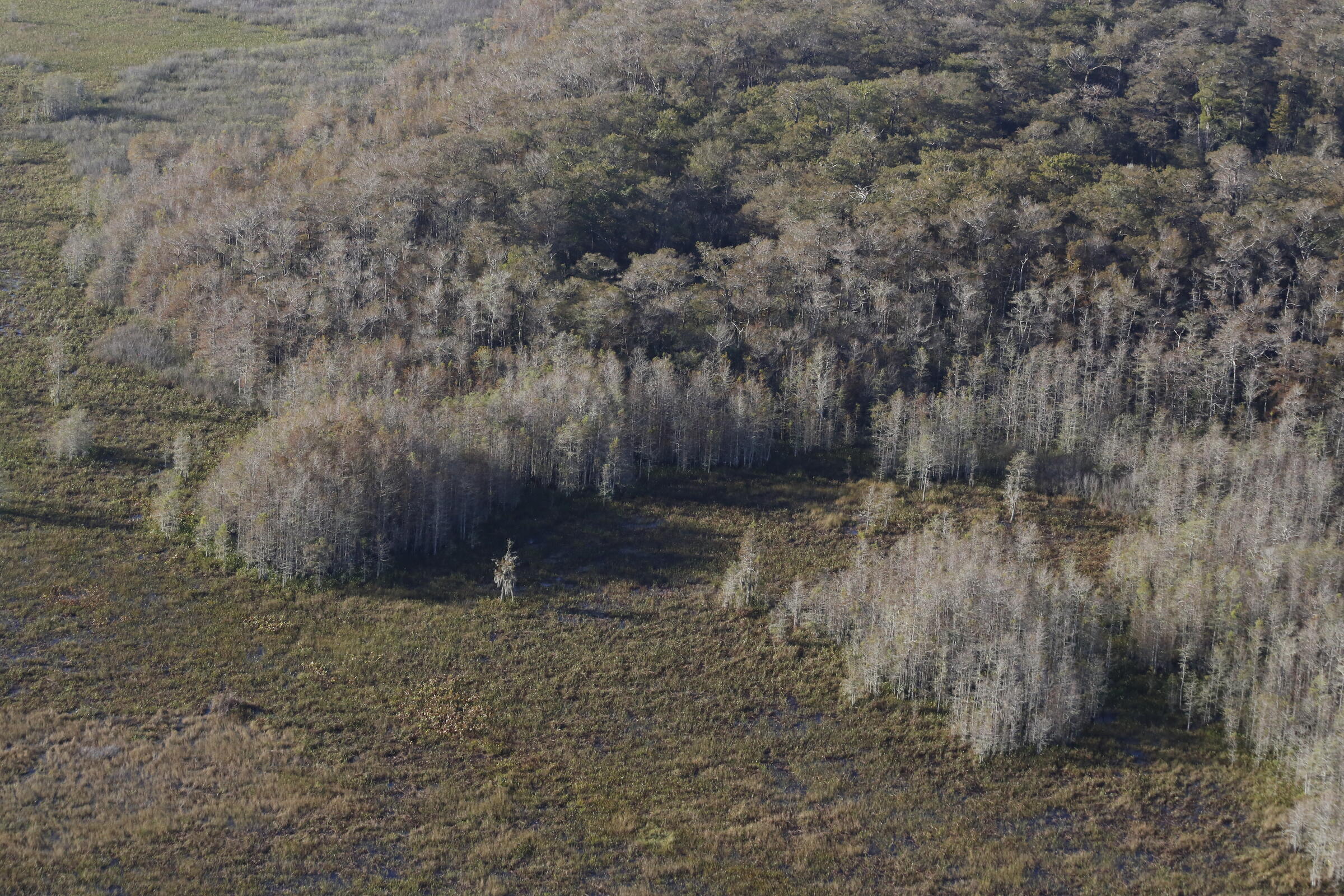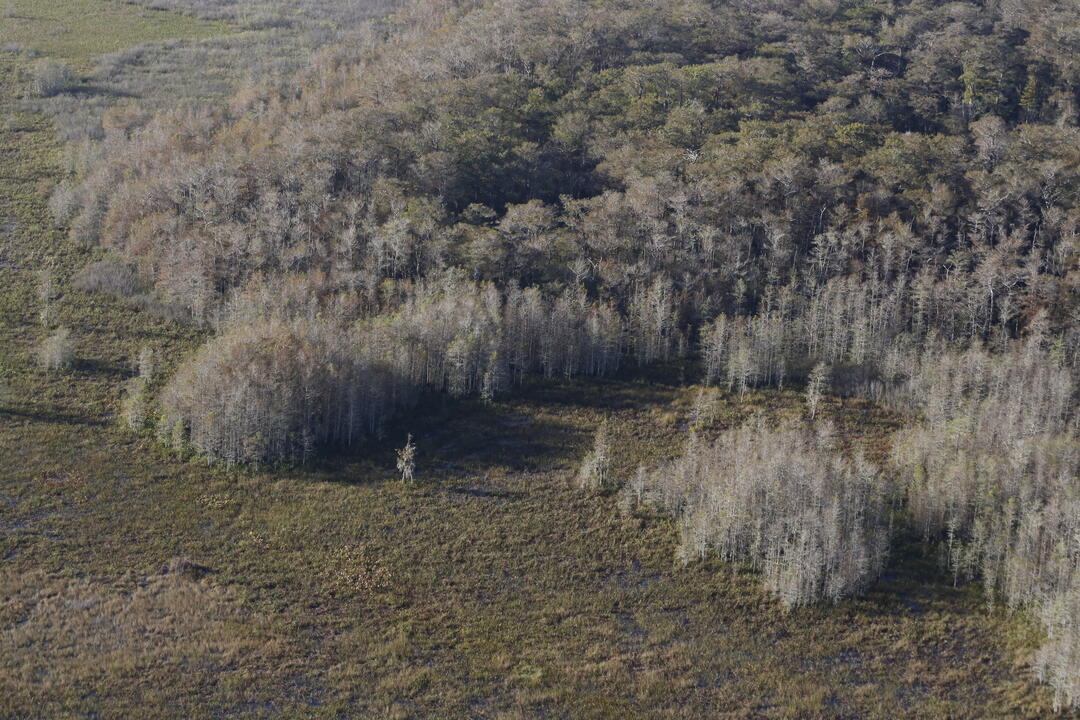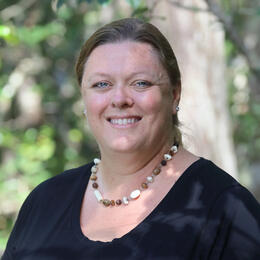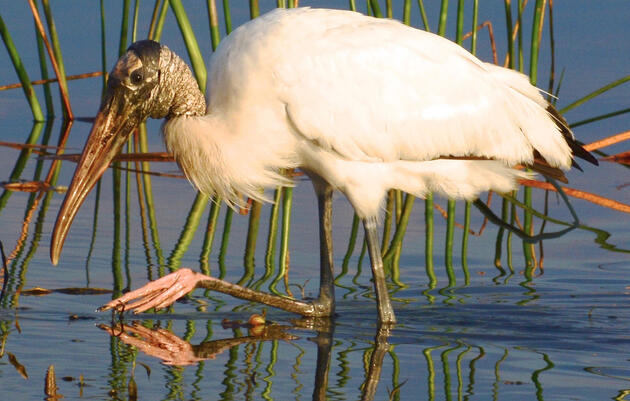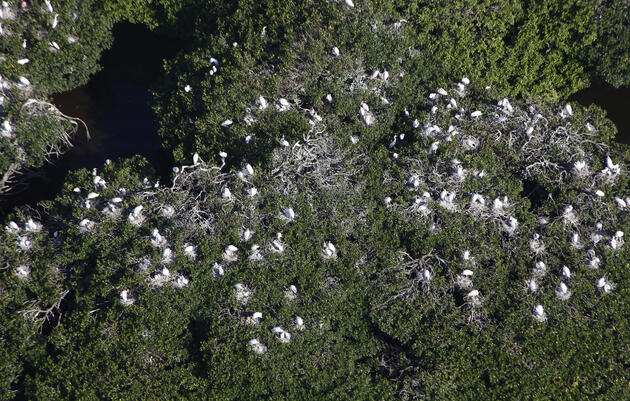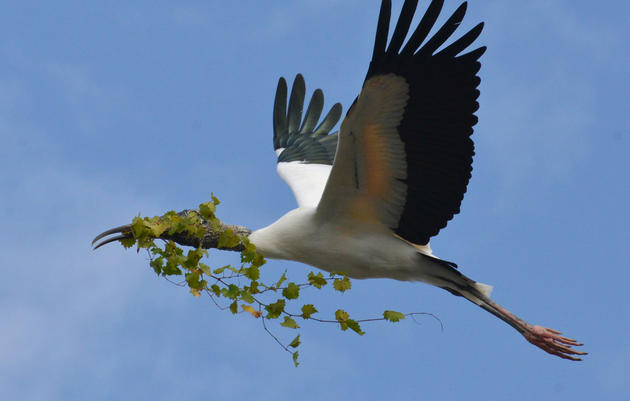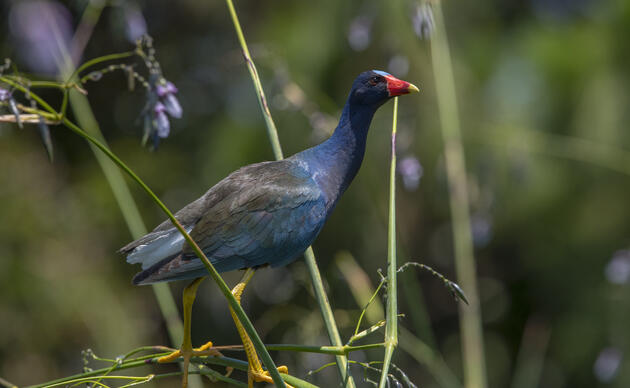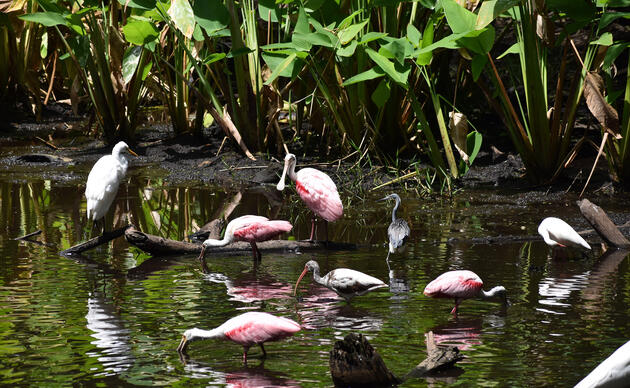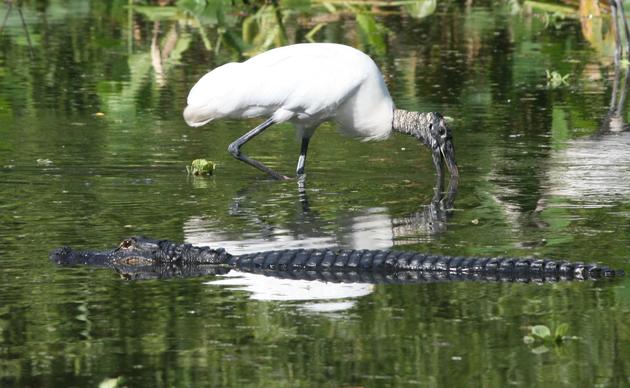Our first Wood Stork survey of the 2022 nesting season was conducted by Restoration Technician Jacob Zetzer on Wednesday morning, 12/08/2021. No Wood Stork nesting activity was observed on this flight. The three colony sites that have most regularly hosted Wood Stork nests in the past 10 years are the Corkscrew colony (Corkscrew Swamp Sanctuary and Bird Rookery Swamp), BC-29 (west of SR-29, north of Florida Panther National Wildlife Refuge), and Lenore Island (Caloosahatchee River west of the I-75 bridge). No wading bird nesting was observed at the Corkscrew or BC-29 colony sites. Great Egrets and Great Blue Herons were observed roosting on Lenore Island but nesting is unconfirmed.
While we did not do a systematic survey, a brief scan revealed no Wood Stork nesting within Picayune Strand. Our staff is always on the lookout for new Wood Stork nesting locations in our region, particularly in light of ongoing restoration projects.
Recovery of Wood Storks in Southwest Florida (including the Corkscrew colony) has been linked with a need for storks to initiate nesting prior to January 1st. This allows them to find adequate food to feed their young and to fledge their young prior to the onset of the wet season. At this point, there is still an opportunity for Wood Storks to begin nesting prior to January 1, which would be a strong start to the nesting year.
Our next monitoring flight is scheduled for January 4.

